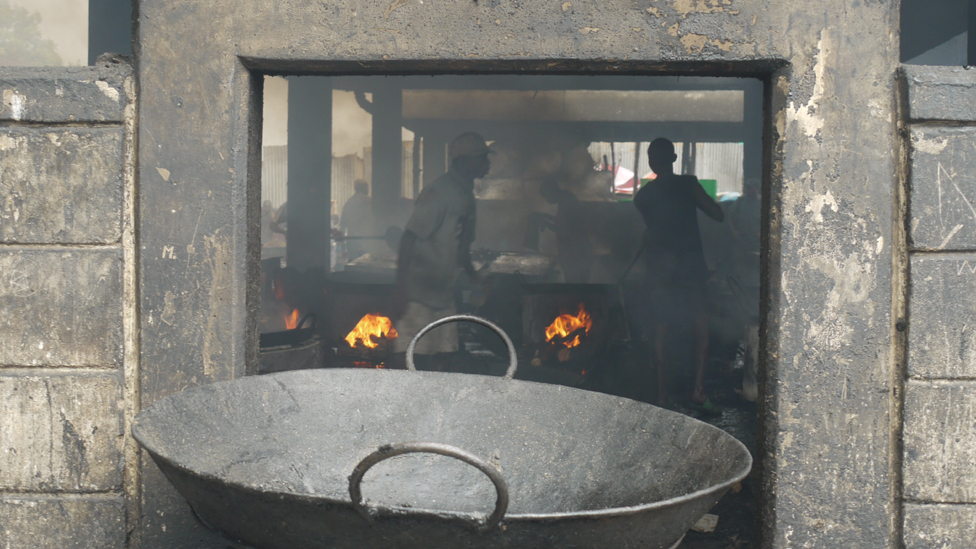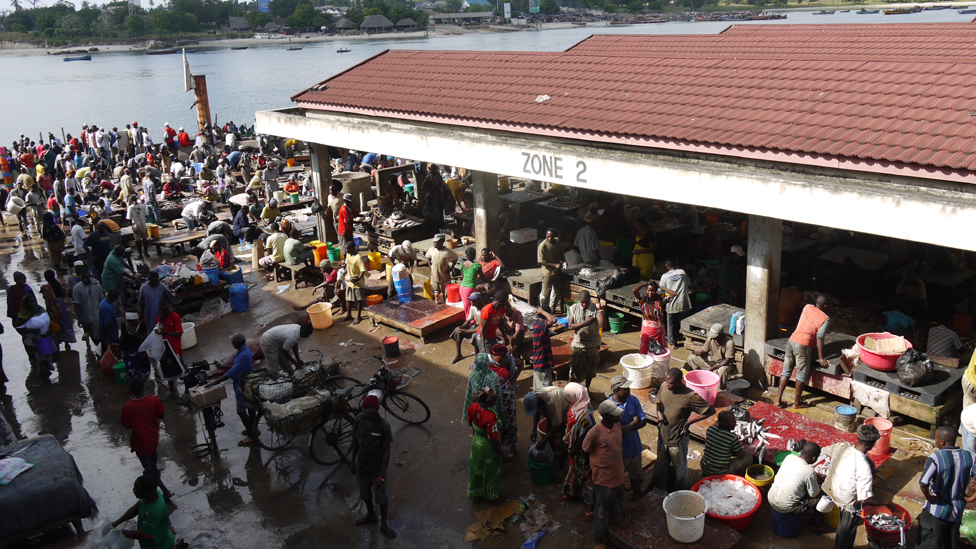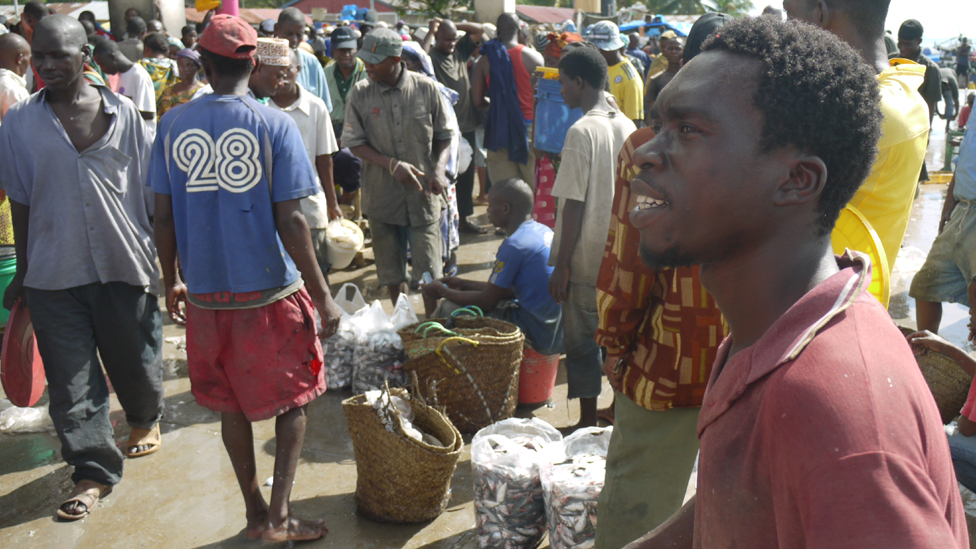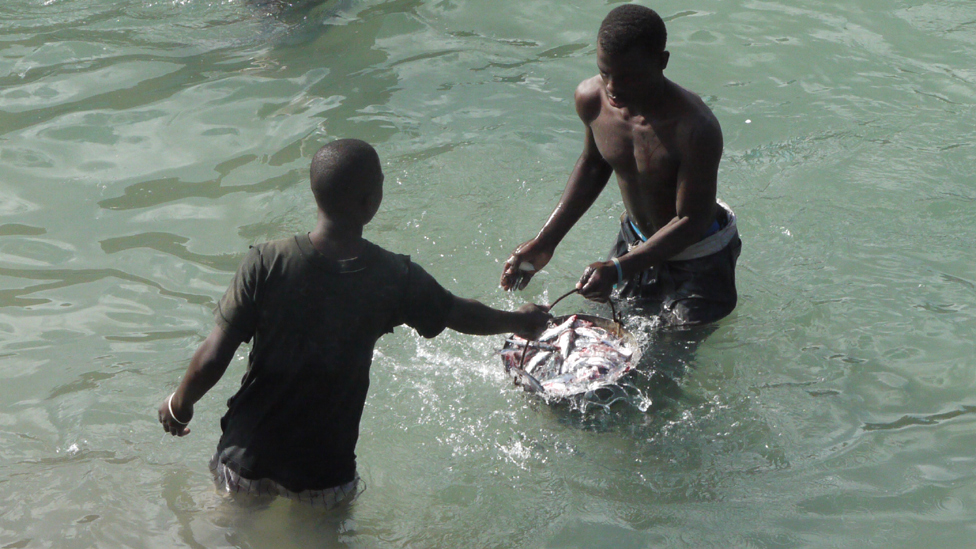Ab-Titchaz
JF-Expert Member
- Jan 30, 2008
- 14,631
- 4,225
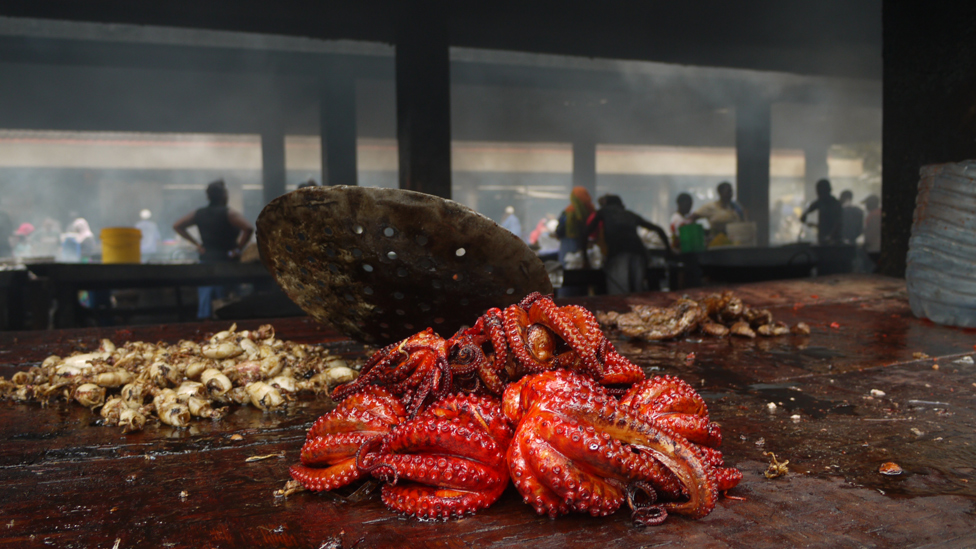
After the early-morning trading is done, the workers move to the other side of the market for a well-earned meal.
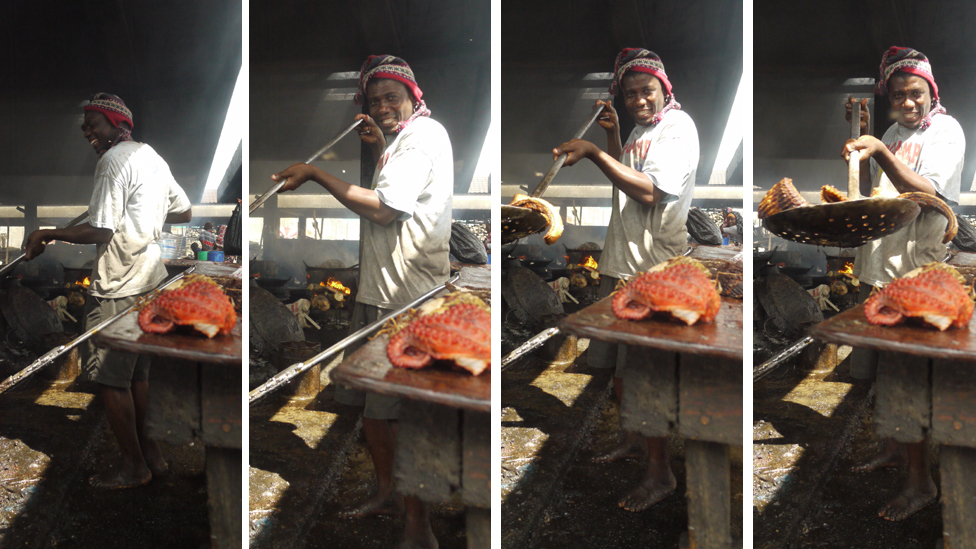
Ally Iddi, 32, is among those who cook up the fish. He has been in the job for 17 years and brings up three children on his wage.
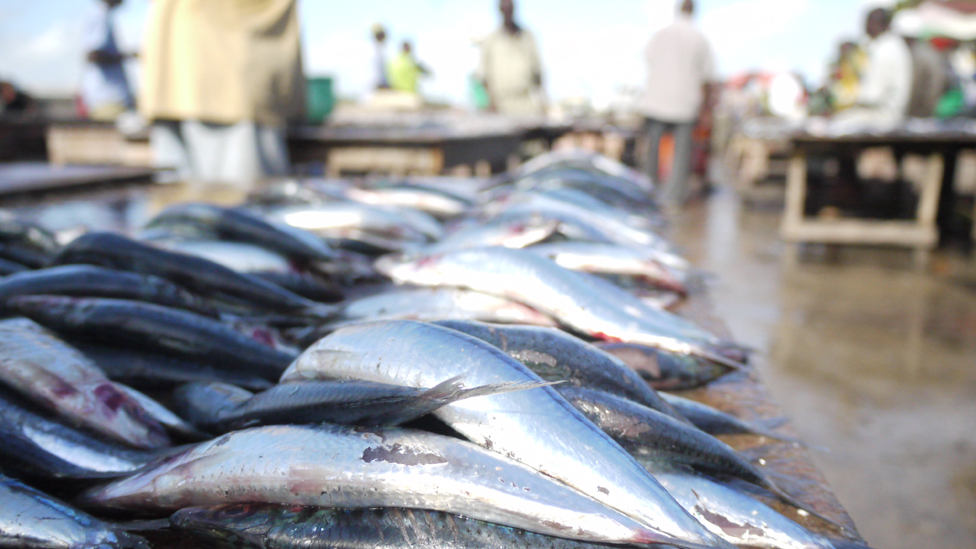
Kivukoni is the biggest fish market in Tanzania's main city, Dar es Salaam. Fish are an important part of the diet for those Tanzanians who live near the country's long coast and many lakes. However, fishermen complain that huge, modern boats from Europe and Asia are taking most of the best fish from their country's waters
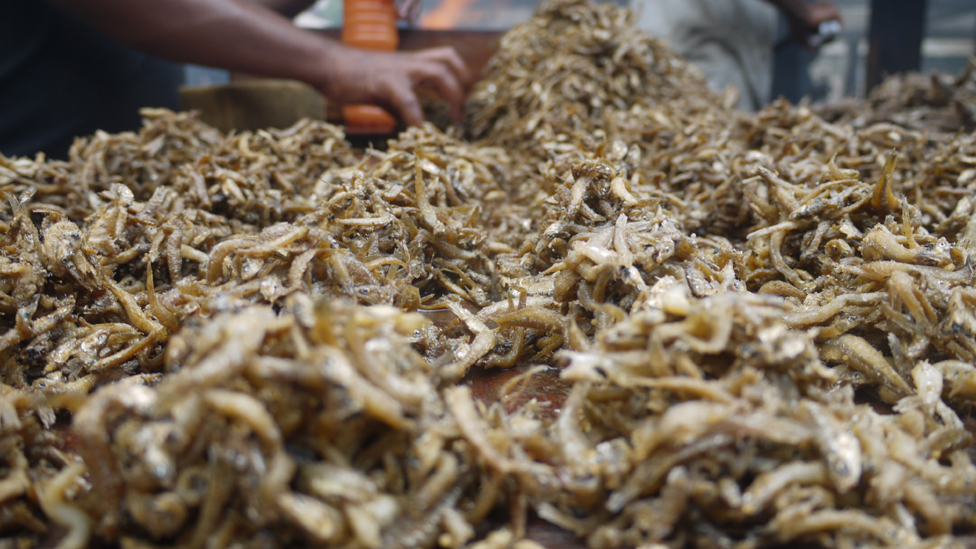
Many of the traders and cooks sleep near the market in shelters made from tarpaulin and corrugated metal. They are trying to save money to buy land in their home villages.
